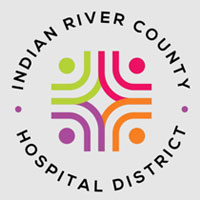 Hospital District forges ahead with sober home plan
Hospital District forges ahead with sober home plan
STORY BY LISA ZAHNER (Week of October 9, 2025)
The county Hospital District is moving forward with plans to open a sober living facility in the 600 block of 10th Street just outside Vero city limits, and has thus far not addressed the problem of residential zoning restrictions which prohibit health and medical services from being provided on the property it purchased for $4 million.
Letters of intent and supporting documents from local agencies and companies involved in drug and alcohol recovery that might be interested in operating a facility on this property are due this Friday, according to a notice sent out by Hospital District Executive Director Frank Isele.
“We are seeking innovative, sustainable, and community-focused proposals with an emphasis on substance use disorder and mental health treatment and recovery that maximize the potential of this property to meet the needs of Indian River County. Your LOI should provide a clear, concise overview of your operational vision for the 10th Street property,” the notice said.
But if the Hospital District ultimately chooses an operator’s proposal that includes services that might run afoul of county zoning, the district will need to weigh the costs, and potential long-term benefits of trying to re-zone the property.
An April 2025 letter from the Indian River County Planning Department affirmed that the property’s residential multifamily zoning does not permit the district or its chosen operator to provide health and medical services on-site.
There’s also the risk that the neighbors will protest any proposed re-zoning to keep a sober-living facility out of their neighborhood, potentially sending the decision to the Board of County Commissioners.
Hospital District officials have asserted that local demand for sober living services was the driving factor behind using taxpayer funds to purchase the $4 million property in December and get into the sober home business – even indirectly through a contractor.
But coincidentally to the new sober home project moving forward, it was revealed recently that one of the county’s existing sober homes operated by Dynamic Life Recovery imports clients from outside Indian River County.
Dynamic Life Director George Lynch came before district trustees asking for a mid-year grant because it had exhausted previously granted funds. Trustees voted to give Dynamic Life an extra $12,000 to meet that need.
As Trustee Paul Westcott questioned Dynamic Life staff about the increased need and local demand, Dynamic Life admitted it was enrolling resident clients from outside the county, then setting them up with an Indian River County home mailing address once they’ve moved in, to obtain benefits such as “scholarships” provided by the Hospital District with taxpayer funds.
“So say I’m in Atlanta, and I have an issue, and I need treatment, and I come to your facility, I come to Dynamic Life. Am I treated as an out-of-stater when I register? And now I'm living at your place, do you now consider me an Indian River County resident? And then the hospital district is now underwriting that patient, me, because I've relocated? Do I hear you correctly?” Westcott asked.
“When they come to us, we're more long term, so they come to us and they stay anywhere from six months to a year, sometimes multiple years, and they register, get ID’d with our address. They're working in our community, they're serving in our community, they're living in our community,” Lynch said.
In addition to Dynamic Life Recovery, four other local entities – New Horizons, Vero Beach Recovery Center, PUR Recovery/PUR Health and Wellness, and Thrive (formerly the Substance Awareness Council) – have been involved in ongoing talks with Hospital District staff and may be among those competing to operate the proposed new sober home.
The Hospital District asked applicants to provide not only a three-year pro forma business plan for sober home operations, but also extensive documentation of licensure, credentials and the agency’s track record in the recovery industry. The packets should also detail the services to be provided, staffing levels, target population, costs, partners and any support to be requested from the hospital district.
District staff also posted the notice on its website for others to apply, but explained that the request for letters of interest was not a formal request for proposals.
“The goal would be to work with a local entity who is familiar with the community and its needs. The LOI process is conducted much differently than an RFP. We are looking for initial responses from the community stakeholders to review and consider. If we need to broaden our search and conduct a formal RFP process that would be the next step,” said the staff point person on the sober home project, Kate Voss.



